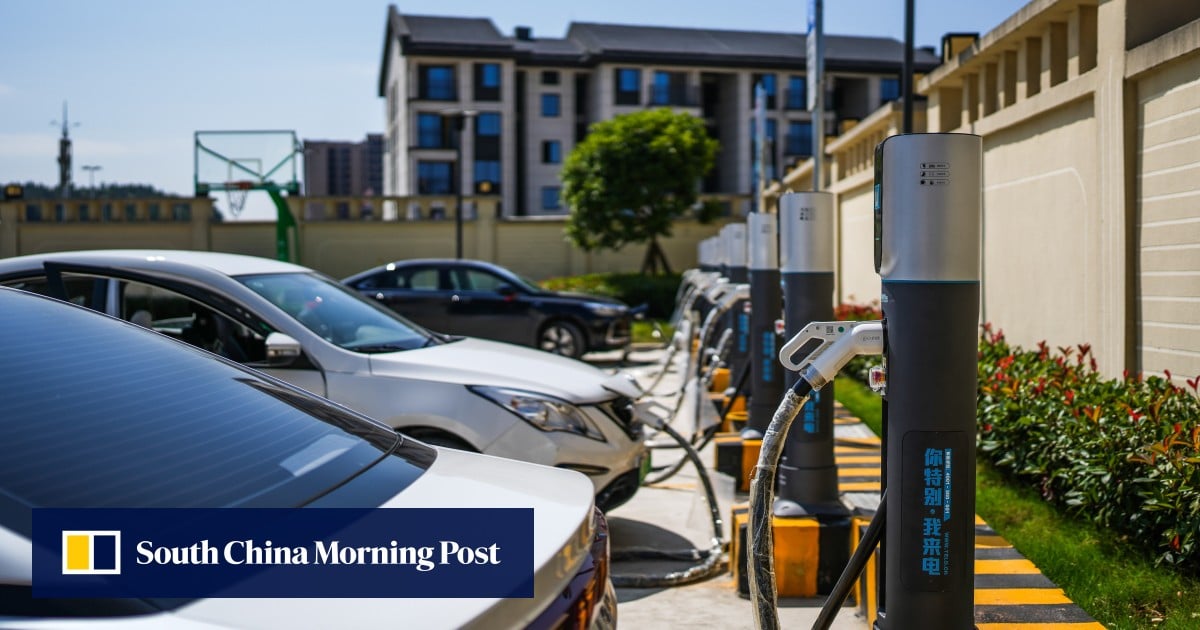China raises tech specs for EV tax breaks with the aim of boosting development, competition

China has raised the technical thresholds for new energy vehicles (NEVs) eligible for tax exemptions, requiring higher driving range and energy density from mid-2024, in a move the government said would boost competition and development in the sector amid growing adoption.
More than 90 per cent of the existing NEV models in China, including electric vehicles (EVs), plug-in hybrid vehicles and fuel-cell cars, will continue to receive tax breaks under the new technical requirements, the Ministry of Industry and Information Technology said on Tuesday.
The newly issued technical requirements adjust regulations to match the rapid development of NEV technologies in China, the ministry said. It hopes that the new rules will “guide enterprises to continue improving product quality and performance” and accelerate the high-speed development of the NEV industry.
The update, issued on Monday by the ministry along with the Ministry of Finance and the State Taxation Administration, is the first adjustment of the technical requirements for NEV tax exemptions since 2017.
“Appropriate and flexible policy guidance can help maintain healthy competition and sustainable development in the industry,” Song Tingting, an analyst at Huatai Securities, said in a report on Tuesday.
The update, which will take effect from June 1 next year, requires the driving range of eligible passenger EVs to exceed 200km, doubling the 100km threshold set in 2017. It also requires the energy density – the amount of energy a battery contains compared to its weight or size – of passenger EVs to be no lower than 125 Watt hours per kilogram (Wh/kg), up 32 per cent from the previous 95 Wh/kg threshold.
Chinese self-driving start-up WeRide obtains two Singapore permits
The new technical requirements come on the heels of a 520 billion yuan (US$72.5 billion) tax exemption package China unveiled in June, aimed at boosting the sales of NEVs over the next four years. NEVs bought between January 1 next year and December 31, 2025, will enjoy a tax break of as much as 30,000 yuan per vehicle, and purchases made between January 1, 2026, and December 31, 2027, will enjoy a break of 15,000 yuan per vehicle, according to the government.
The update also sets higher requirements for energy consumption, adds several indicators such as driving performance in freezing temperatures, and clarifies the technical requirements for NEV models with swappable batteries that will be eligible for the tax breaks.
The inclusion of battery-swapping EVs in the tax exemptions is expected to boost the adoption of such technology, Huatai Securities’ Song said. “Battery swapping has certain advantages in reducing the cost of car ownership, eliminating range anxiety and improving safety,” she added.
BYD quickens showroom expansion abroad to offset flat China EV sales growth
China is the world’s largest automobile market and recorded the sales of 2.1 million cars last month, or year-on-year growth of nearly 30 per cent, according to data released by the China Passenger Car Association this month. About 40 per cent of the cars sold were EVs and plug-in hybrids.



